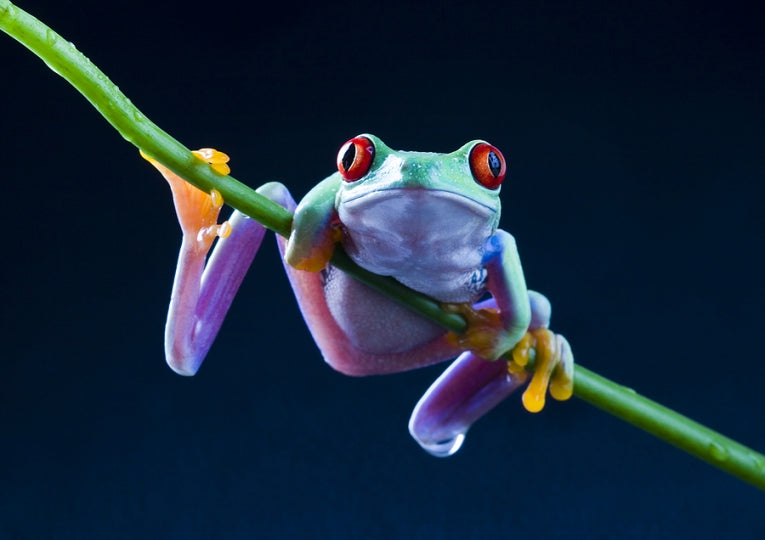When a dead frog's egg is used as food by fly larvae, that is an important part of the decomposition of living material. The flies tend to choose dead eggs but can lay on others that are healthy nearby. Spatial contagion is a term reserved for this kind of colonisation where good areas may be ignored while unsuitable ones are actually colonised.
Myra C. Hughey of Boston University and her three colleagues publish today in the journal Biology Letters, describing how they found specialist flies colonising all damaged egg clutches and some intact eggs. They were 3.3x more likely to colonise the intact clutch if they were next to a damaged one. Strangely there was no impact from overcrowding, as intact eggs were often ignored even when they were not very far from damaged clutches.
The key points of this project are to discover how accurately the flies evaluate the quality of their potential food (for the larvae.) Risk avoidance behaviour could contribute to the flies' decision making processes (risk contagion.) Reward contagion involves the colonisation of non-preferred patches close to the preferred ones. Together they make up the study's "spatial contagion."
Frogflies are Phorid flies that lay eggs on the Agalychnis callidryas (red-eyed tree frog frogspawn). These clutches of spawn may be several metres apart, and affected by predation (by wasps). Confusingly another parasitic wasp also attacks the Phorid fly, but it is important, if strange, that the frog and the fly don't actually affect each other's survival directly.
The experimentation was in Gamboa in Panama during 2010. Simulated wasp damage attracted the fly to certain clutches. Hatching of Phorid flies and their associated parasitic wasps was observed and the insects preserved for counting.
The whole experiment is about ecology, of course. While the frogs take a back seat, the flies and their parasite prove the main points expected of the whole project. While no direct benefit to the flies on damaged clutches could be found, otherwise the experiment proved that fly survival on all clusters was similar.
Reward contagion seems to have increased the colonisation rate when intact clutches were near to the preferred damaged clutches. The reason for the spatial contagion remains to be found. Damaged clutches having been preferred for laying, it's likely that colonisation success there improved upon the alternative of not laying at all. In other words the odour of damaged clutches leaked into the air and persuaded the females to lay.
All very simple you might think. But all natural populations and communities could be affected by this behavioural preference. Negative effects include habitat loss and also the rewarding of animals that choose attractive but unsuitable situations.
Consumers in food webs can be found under-matching their available resources and such dynamics as these explain that situation. Little research has so far dared to penetrate this minefield of "contagions" but the Hughey paper certainly sets out to explain this confusing set of scenarios. I hope my explanations of their tireless research let light fall on what they are doing. It would be so easy to further confuse. Read carefully!
href="https://earthtimes.org/environment/insects/index.html">Insects










